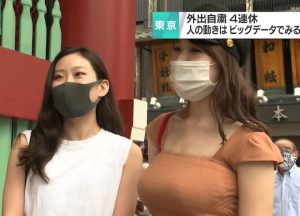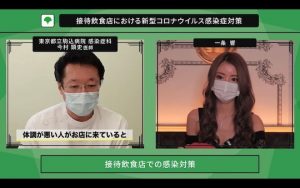Japanese sex industry operator sues government over coronavirus cash relief discrimination
The Japanese government has stepped in with cash handouts for both citizens and businesses during the coronavirus pandemic in an attempt to offset the worst effects of the economic fallout. Offering a maximum of ¥2 million in a one-off lump sum to help pay rent, the money has been a lifeline for small companies like shops and restaurants.
But what about the sex industry? So far, operators of such services have been excluded from the relief program.
One woman has taken matters into her own hands, filing a lawsuit against the Japanese national government as well as two firms overseeing the administration side of the program. The woman operates a fuzoku, or sex industry, service in the Kansai region, though the lawsuit was filed at Tokyo District Court.
Call girl “delivery health” services, love hotel operators, brothels, and so on are not covered the scheme, something that the unnamed woman says is in violation of the Constitution, whose Article 14 stipulates equality for all.

The woman was one of several sex business operators who met officials in June to ask to be included in the program. They were snubbed — told there was no precedent for fuzoku businesses to be covered, since past public handout programs such as those after natural disasters have not provided money to the sex industry.
Media reports first emerged of the woman’s intention to sue in August. “The state has yet to provide any convincing explanation” for the exclusion, she told Kyodo News at the time.
These sex operators are technically doing everything by the book in terms of taxation and complying with the law, her legal team argues. But the government is concerned about a public backlash if it gives money to something everyone in society knows exists, yet does not want to think about — much less support with the public coffers (even though such businesses are contributing to those coffers). No doubt, the government is also concerned about the industry’s traditional link to organized crime — and that relief money may go into the pockets of the yakuza. (Host and hostess clubs, though, have received money, at least in Tokyo.)
According to police numbers, Japan had 31,956 officially registered sex industry businesses nationwide — and many more illegal ones — as of the end of 2019. This was a very small increase of 0.1% from the previous year. Over 60% of these are delivery health or similar businesses that dispatch sex workers to clients, typically waiting in love hotel rooms.















2 Comments
source of pic?
@whodatboy
Knock yourself out.
S-Cute 756_hina_01